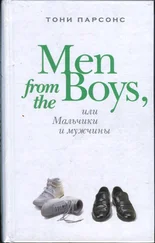One of the girls had gone to the kitchen to get some beer. The walls in the house were too clean, the paint couldn’t have been more than six months old, but the dining room looked lived in. The few furnishings were cheap but new.
He could still feel the kisses on his face, the fresh saliva, warm and corrosive like the exfoliating creams housewives use to get their skin shiny and clean, the water of the fountain of youth in a painting he had seen on the cover of a magazine at the bank, men and women bathing in rejuvenating waters. . And, at the same time, how exhausting. . man wasn’t the result of evolution from animals, man was already there: there was no evolution, only taming, vigilance — but the hierarchy was still fresh. . Man drinks and eats, copulates and urinates, breathes and sleeps and looks at his cage as if it were a mirror, fascinated, suspicious, imprisoned as well. How can he hope to return home, that man in the zoo looking at the animals? On which side of the bars is his house? And all the years of watching over the animal were exhausting, the way he’s exhausted by the temptation to leap to the other side, to avail himself of his rights. . He couldn’t lose his freedom, accept that there’s a boss without creating a scene, accept it like the girls accepted them: a sweaty trucker flecked with straw, a potbellied office worker stinking of garlic mayonnaise. .
“Hey, what are you thinking about? You’re on some other planet!” shouted Cloe. “What’s wrong with this guy?” And she laughed and started kissing Miqui. “Come on, man, you’re gonna have fun!”
He couldn’t imagine hugging Marga with the other two there. He had to wash himself, get the animal off him. But he shouldn’t wash all of it off either.
He glanced at Marga, ashamed, with the same shame that animals have — the way they lower their gaze and their ears when they’re around humans.
His contemplation was already an access into her, and maybe what he had to do was be satisfied with that, just get up and leave.
“There’s plenty of fish in the sea,” his father told him the first time he broke up with a girl.
There were plenty of fish and no: he would never understand what they had in common, what made them women, what made them different from him.
“Hello? Hello? Hellllooo?. .”
The other two were nibbling on each other like they were in love, and he couldn’t even speak. She would eventually react, that was her job. Had he become so unappealing over the years? Didn’t his body have the right to get close to these bodies? Or was that precisely what would make the act more human?
“Hello? Hello? Don’t you like me? These handsome office workers. . you have so much time to think. .”
It wasn’t having time that made him think, but having relations. And he would think about this for quite some time. It had happened once with a client. She and her husband owned the Vidreres hardware store. Twice a week she came by the office to make a deposit. She was older than him — that was before Ernest had a potbelly. They agreed to meet after work, saying they had some details to discuss about a pension plan. They were so discreet about their intentions that they met at the social club right across from the office. Cindy didn’t work there then. The waiter made the rounds of the tables. Ernest wrote a few numbers on a piece of paper on the marble tabletop, and, among the figures, without looking up: “I like you.” And then he added, in a trembling hand: “A lot.” And then, in all caps: “A LOT.” And once more, the pen going through the paper: “A WHOLE LOT.” He wanted to write: “I’m shocked by this, I can’t believe it, what am I doing?” He wanted to keep writing what he was feeling, revealing it and revealing himself to her. Was he himself? And she, was she? “I’ll wait for you on the corner,” he wrote, and made a diagram with an arrow pointing to a car. “Blue Megane.” The same one he still had.
He drove with one eye on the mirror, afraid he was being followed, and veered into the forest. The next day she called the office, and he hung up without saying anything.
You aren’t the one who decides. . the girls don’t decide to be on the highway, the boys didn’t decide to kill themselves, the trucker’s father hadn’t decided to be scammed, he hadn’t decided to come here. The girls were too young. No man could resist them.
This was nothing like the highway. These girls earned more than his two eldest daughters put together. The little one spent all day at home, online. Of course, he thought. My daughters should take this business up. I mean it, girls. From the bottom of my heart.
“I’ll bring you another beer,” said Marga, getting up.
Thinking wasn’t a question of time, but rather a question of space, of intensity. You could think about two contradictory things without any contradiction, in closed compartments, because the brain worked in layers. There’s a party going on upstairs; on the floor below, someone is trying to sleep. You hear the music from the party, and those up there know that every stomp, every dance step, will be heard down below. Regrets above and headaches below, but each private, without being communicated. Most of the time, the brain isn’t a two-story house, but a skyscraper forty or two hundred floors tall, with a different landscape out each window. If it were just one floor, it wouldn’t matter which one. Being forced to live on more than one simultaneously gets you used to relativism. You have forty, two hundred thousand lives. But, on the other hand, you have to choose, because you have to be someone, you have to be a role model for your daughters, at least, for the people you love, you don’t want to be an example of solitude, you don’t want to leave them alone, you want them to know that you are here, in one window or another. You aren’t an irresponsible cad. And so what does he decide? To take advantage of the fact that the girl is in the kitchen to stand up and flee? What is going with the flow? Staying or leaving? What does he want? Shouldn’t he know that? Otherwise, what’s he doing here? How could he not know? Doesn’t he know if he wants it? Isn’t indecision a worse sin? If you’re going to make a mistake, at least save yourself the suffering! If only you could leap! From the twenty-first floor! From the car speeding toward the tree!
He suddenly remembered something one of his cousins once told him at the tail end of a wedding reception, when the dancing had begun and there were only three people left at their table: his cousin, a bearded man, and him. The bride passed near them, and the bearded guy made some comment about her ass. His cousin’s face changed suddenly, and he told him he could cut out the crassness.
“That kind of comment,” he said, looking into the eyes of the bearded man, who was at least as drunk as he was, “always comes from guys who aren’t getting any, guys who resent women.”
The bearded man was slow to grasp what he’d just been told, but then he answered with the same rudeness he’d used to describe the girl’s ass — and which made his cousin realize that the comment wasn’t coming from carefree joie de vivre, but was tinged with self-indulgence and in bad faith — and, still smiling: “There’s no merit in getting some if you have to pay for it.”
“No one’s talking about merit here,” answered the cousin. And then he said the words that haunted Ernest for weeks, to the point that it changed the frequency of his sexual relations with his wife. His cousin said: “I look for a bit of life without hurting anyone. That’s why I pay for it, but I don’t recommend it to others.”
The girl came back with more beers.
“What?” she said, taking his hand.
She didn’t know how to take an old man’s hand; she took it in hers carefully, like a teenager, and tried to tug. He pulled it away. He emptied his beer in three gulps. A happy feeling of release washed over him. As he waited for her to finish her beer, he saw the other girl’s hair at his friend’s waist.
Читать дальше












